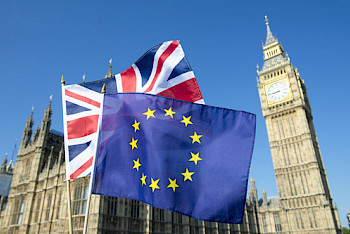What are the potential implications for global mobility? In what ways should we prepare?
The UK’s decision to leave the European Union, known as Brexit (short for BRitish EXIT) has led to a period of stark uncertainty for businesses and their employees. The precise Brexit plan is far from resolved at this writing. The political and trade discussions are currently a source of wide and growing disagreement and lack of clarity over key issues including:
- Will it be a “soft” or “hard” Brexit, (gradual /phased vs. all at once)? Each would have very different implications for trade and mobility.
- Is there a potential third option, including the possibility of a “No Deal” or the UK holding another vote? (Yes, these are possibilities.)
- What will be the framework for new multi-lateral trade deals? (A UK negotiating team is in place.)
- What is the plan for the border with Ireland? (The idea of a “hard” EU trade border separating the Republic of Ireland from Northern Ireland is a very heated debate at the moment.)
- What will be the work and immigration status of EU nationals within the UK, and vice versa?
On this point, we believe the likely result will be some degree of restriction on the free mobility of assignees between the U.K and the E.U. although the intent is to provide as much ease as possible. To quote Bristol’s partner, the immigration team at Emigra Ogletree Worldwide (U.K.): “The government is committed to guaranteeing the rights of EU citizens currently in the UK as well as UK citizens currently in the EU, and have released a Statement of Intent which clearly shows that a new system will be ‘streamlined and user-friendly and draw on existing government data, to minimise the burden on applicant to provide evidence of their residence’. The government also confirm that ‘There will be plenty of time for EU citizens and their family members to apply for their UK immigration status’ with a deadline of applications being 30 June 2021.” 
Detailed information on the proposed EU Settlement Scheme can be found here: https://www.gov.uk/government/publications/eu-settlement-scheme-statement-of-intent
- How will Brexit affect businesses’ future ability to attract EU talent?
Bristol’s view: Unknown, pending clarification. Lack of clarity was underscored by the UK Institute of Directors (IoD) criticism of the government failing to provide detail in the area of post-Brexit migration policy: “The biggest question mark looms over what will replace freedom of movement”, the IoD wrote. “Businesses need to work from concrete proposals…We urge the government to bring forward its plans for post-Brexit migration, which should be at the heart of our future economic partnership with Europe.”
- Will there be an “exodus” of expatriates from the U.K.?
Anybody’s guess – but we have already seen organizations speculating and planning to move their businesses out of the U.K. including Unilever (to the Netherlands). Bank of America Merrill Lynch, which employs 6,500 staff in Britain, has already announced it will relocate 125 UK staff “predominantly” to its new post-Brexit European hub in Dublin as well as its other EU offices including Paris. Britain’s biggest carmaker, Jaguar Land Rover, told the Financial Times that a hard Brexit will make it unprofitable to remain in the UK, and that it was already struggling to attract top international talent to the UK.
What to do?
While the predominant advice at the moment is mainly wait-and-see, Bristol is committed to keeping our clients informed while supporting you and your assignees through any employee mobility decisions which may result from Brexit. Our immediate advice includes:
- Prepare in advance: Assess the status of any EU/UK nationals currently on assignment and continue to be aware of how their status may change once Brexit becomes a reality;
- Engage with trusted partners such as Bristol, your immigration partners, your household goods management companies, etc. to make sure we are providing all of the necessary support for potential future moves to / from the UK;
- Advise and reassure transferring assignees that you and your Mobility team are committed to supporting any mobility- and work status- related challenges they may face arising from Brexit.
- Prepare policies for Brexit-related contingencies, for example:
- Group Move policies
- Added flexibility regarding provisions such as extended stays in temporary housing, delays in shipping of household goods, or additional costs required in terms of preparing additional visa and immigration paperwork.
If you have questions or comments, we’d love to hear from you! Please contact your Bristol Account Director directly, or you can reach us at info@bristolglobal.com, or through the following contacts:
Bristol UK: Glen Bansor, Managing Director / Email: gbansor@bristolglobal.com / Phone: +44 (0)207 952 1052
Emigra Ogletree Worldwide: Ben Jeffrey, Lead UK Immigration Consultant: bjeffrey@emigra.com